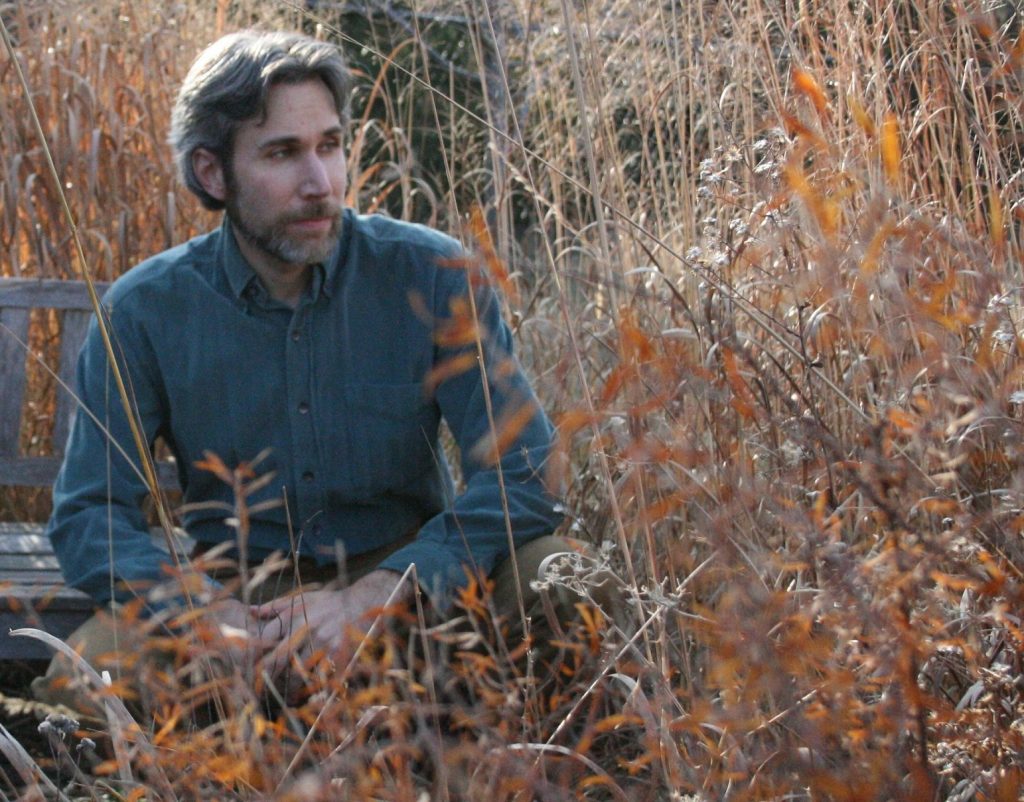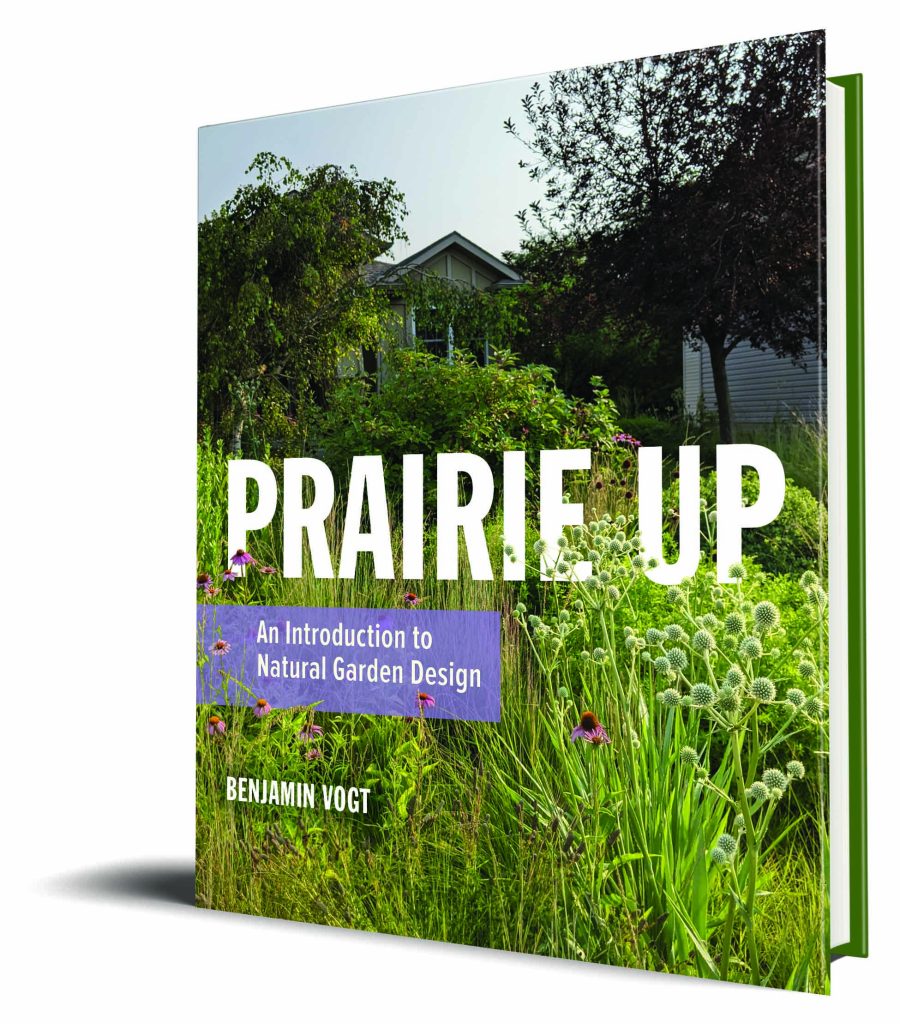Benjamin Vogt, author of Prairie Up: An Introduction to Natural Garden Design, answers questions on his scholarly influences, discoveries, and reader takeaways from his new book.
Q: Why did you decide to write this book?
No other book exists that speaks to the DIY gardener on the topic of naturalistic garden design. There are many seminal texts, but time and again I’ve heard from folks that while the work of a well-known designer was inspiring or a garden they visited was jaw dropping, they had no idea how to implement that on a smaller scale at home. This book is honest, approachable, and dispels myths by making complex ideas actionable in smaller bites. A weekend warrior now has the tools to begin reimagining traditional suburban and urban landscapes that are artful and ecologically purposeful. As we read more and more about reducing lawn monocultures, these are exciting times to redefine gardening and who it is for.
Q: Who were your biggest influences?
This is a ridiculously large question because my ideas and work are informed by writers, philosophers, artists, architects, activists, etc. To name a few: Aldo Leopold, Joanna Macy, Jens Jensen, Audre Lorde, and Terry Tempest Williams. Many of the books listed in the biography of my book, A New Garden Ethic, were critical to the formation of my ideas as a writer, thinker, and gardener.
Q: What is the most interesting discovery you made while researching and writing your book?
How much prairie/meadow/savanna exists (or recently did) in the United States. Folks hear the word “prairie,” think of Nebraska or Iowa or Montana, and then dismiss the idea that a prairie-style garden is for them and their region. It’s so not true. Every state has an ecosystem like the ones we see in the most stylized garden books on natural design and in the hottest public gardens of today. The rich plant diversity and density in this kind of garden heals a site and prepares it to host so much more at every layer, from sedges to grasses to flowers to shrubs to trees. Prairie is everywhere. And a lawn is especially screaming to be one—it’s practically set to launch.
Q: What myths do you hope your book will dispel or what do you hope your book will help readers unlearn?

I want us to unlearn “traditional” gardening of lots of wood mulch and plants placed far enough apart so they can breathe. Nature abhors a vacuum. I want us to reconsider shady areas not as something to give up on but to be ecstatic about, because so very much grows in shade. In fact, you can have a gorgeous shade meadow. I want us to get away from helicopter parenting, where every plant is precious and needs to be protected or coddled when what we need is to celebrate the survival of the fittest. I want us to embrace dynamism in a garden or urban landscape, being overjoyed that plants come and go and patterns shift, that wildlife who need the space are different year to year. And I want us to get away from the idea that lawn is easier to maintain than a thick diversity of grasses and flowers, because the hardest aspect about making the switch from lawn or traditional mulch garden beds to more natural ones is simply taking the time to learn from plants over the years versus dictating to them.
Q: What is the most important idea you hope readers will take away from your book?
That when you create a prairie/meadow garden, you are making a stand for all of us—all life on your street, in your city, and on this planet. Going against the flow may seem like an intractable obstacle but once you start pushing the boulder, it surprisingly gets easier to roll and your neighbors will start to learn from you and good conversations will happen. Be brave and be fearless, because this is what nature needs of us right now—a joyful defiance that says beauty is habitat and habitat is a revolution of compassion for one another. I’m seldom happier than when I kill a lawn as we prep for a new garden.
Q: What do you like to read/watch/or listen to for fun?
So much. I’m truly eclectic. I can read deep ecology and ten minutes later be absorbed in a 1980s film like The Running Man. I enjoy scrolling through Instagram and following Minnesota Gophers football; taking a prairie hike, of course; working on a new book project; adding to my yacht rock and synth pop collections; and finding new puns like elevator jokes which work on so many levels.

